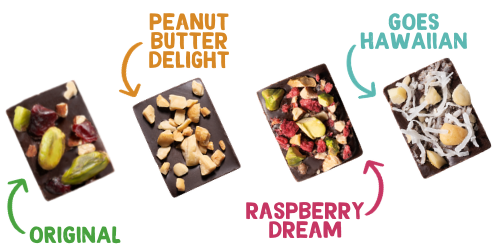Those Sugar Cravings? Here’s the Science Behind Them
The science behind sugar cravings
Let’s talk about sugar. Yes, sugar contributes to a whole bunch of problems like cardiovascular disease and diabetes. But that’s only because most of us are eating way too much of it, and we’re eating the bad kind of sugar, too.
Why sugar matters
Here’s the thing about sugar. While an excess of it — especially an excess of the processed sugar that’s in so much of what we eat today — poses health problems, we actually need sugar. It’s our bodies’ fuel.
Let’s get scientific for a second. When your body breaks down carbohydrates — and sugars are a carb, by the way — it converts them to glucose (which is just another type of sugar) and sends that glucose out into your bloodstream. Once there, your body uses a hormone called insulin to convert that glucose to fuel for your cells.
Without sugar, your body doesn’t have what it needs to function. You’d be like a car with an empty gas tank.
The problem with sugar
But here’s the rub. Your car’s gas tank has a capacity. You can’t overfill it. (Or rather, you can, but the gas spilling onto your shoes will tip you off pretty quickly.)
Your body doesn’t have that clear max capacity, though. You can consume way more sugar than you need, at which point an excess of glucose builds up your blood. Chronic excess glucose in the bloodstream has a name you probably already know: diabetes. It also leads to a whole host of other problems, the least of which is weight gain.
But we all already know that too much sugar is so bad for us. Why, then, are we so quick to give in to that donut in the breakroom? Turns out, there’s science behind that, too.
Why we want sugar
Sugar fuels all of your cells, including the ones in your brain. Those brain cells want the fuel they need to work their best, so they view sugar as a reward. Your brain literally tells you to eat sugar. The more of it you eat, the more your brain wants.
On top of that, eating refined sugars makes sugar cravings more intense. When you eat refined sugar, which is a simple carb, your body quickly turns it into glucose. Your pancreas then responds by quickly creating insulin to combat the blood sugar hike, leading to what we all know as a “sugar crash.”
That low-energy, sluggish feeling isn’t necessarily the biggest problem, either. The big issue is what comes next. When we’re feeling tired and cranky because our blood sugar levels are too low (thanks to the excess insulin), most of us reach for a pick-me-up. And all too often, that comes in the form of something with more simple carbs, repeating the process.
These simple carbs hide in sneaky places, too. They’re not just in candy bars. Many baked goods (including bread), salad dressings, fruit juices, and packaged foods contain simple sugars. Yikes.
The good news? By switching to complex carbs — which are found in whole foods like fruits and whole grains — and watching your sugar intake, you can break the cycle and get a handle on your sugar cravings.
You don’t have to be ruled by sugar, though. Make little swaps — like your usual candy for our low-sugar chocolate — and you’ll make a big difference for your long-term health.



